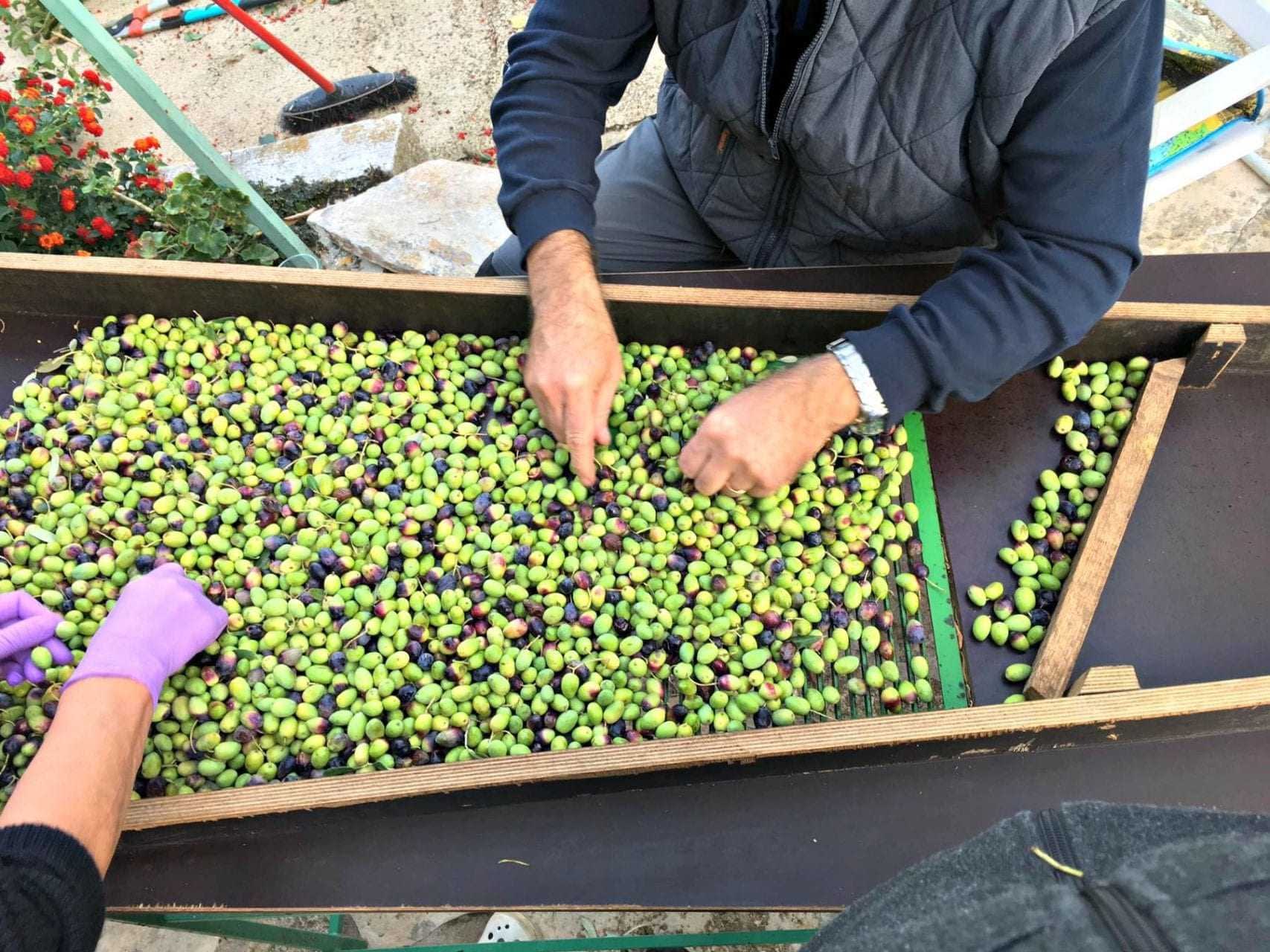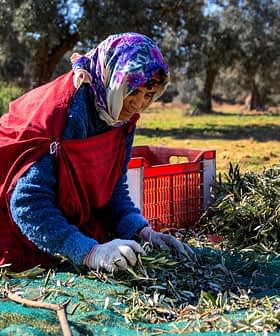Olive Oil Producers from Small Croatian Island Strike Gold, Together
Olive oil producers from the Croatian island of Šolta joined forces to submit a single entry to NYIOOC 2017, winning a Gold Award and placing its Šoltansko maslinovo ulje on the world stage.
One of the Gold Award winners announced last month at the New York International Olive Oil Competition (NYIOOC) was a robust Šoltanka, made from an indigenous olive variety also known as Levantinka that grows on the Croatian island of Šolta. This prize winner happened to be a joint entry to the competition submitted by an association of olive oil producers from this rocky Adriatic island located in the central Dalmatian archipelago.
I had the feeling that I should watch the live stream. I thought I was dreaming when at midnight I heard, and I knew this could be something very important for our island.
A joint entry by an association of producers was a unique initiative. Zlatko Burić, the president of Zlatna Šoltanka (Golden Šoltanka), the official name of the association, told Olive Oil Times about the rationale behind its creation:
“Olive growers on Šolta are small family farms that do not have enough olive oil or the financial capacity to enter the market on a large scale. But together, we are capable of covering a wider market,” Burić noted. Named after its indigenous olive variety, Zlatna Šoltanka was created in 2011 and today has 20 members, all of whom are small family producers growing olives and producing oil on the island.
See Also:This year’s best olive oils from Croatia
In October 2016, olive oil from Šolta received Protected Designation of Origin (PDO) at the EU level under the appellation “Šoltansko maslinovo ulje” (Solta olive oil), thanks to the hard work of Zlatna Šoltanka who prepared the application and submitted it to the European Commission. PDO status affirms that the oil was produced, processed and prepared in a specific geographical area according to certain quality requirements.
Zlatna Šoltanka, however, is going a step further with the association’s focus now on producing a superior quality olive oil that goes above and beyond the “extra virgin olive oil” appellation.

Soltansko maslinovo ulje – Olive Oil of Solta, an organic robust Gold Award winner from Croatia
“One of the current goals of the association is to ensure that more olive growers on the island switch to organic production and that the production of olive oil here is of the highest possible quality,” explained Burić.
“It was on the Olive Oil Times website that we learned about the efforts of a group of experts and olive growers who founded the international Association 3E. We agree with their view that the category ‘extra virgin’ is often compromised and largely abused. Golden Šoltanka aims to place only ‘super premium’ olive oils on the market. That is why we will connect with other regions in Croatia and with other associations and producers worldwide to join our efforts in introducing this superior class of olive oil.”
With such high standards, it’s not surprising that Šoltanka was awarded gold. At least 50 percent of this organic extra virgin olive oil is made with Šoltanka olives, as well as another indigenous Dalmatian olive variety called Oblica. In keeping with traditional techniques, Šolta’s olive growers hand pick the fruits which are then processed into oil and bottled on the island in order to guarantee authenticity and a uniform high-quality oil.
Every olive oil aficionado knows that like good wine, terroir is integral to the making of a quality oil. The island’s rocky limestone, mineral-rich soil, and local flora add to the oil’s character, as well as its climate of hot and dry summers, exposure to the northern Bura wind, and low rainfall.
According to Burić, the secret ingredients to high-quality oil is also a lot of meticulous and painstaking work and a good dose of TLC: “Šolta’s inhabitants are in love with their olives. They have a long tradition in the cultivation of olive trees and the production of olive oil. Olive trees on Šolta grow on rocky terrain with little fertile soil and the use of mechanization is impossible, so everything from cultivation to harvesting is done with small manual tools.”
“Only this way is each tree a ‘personality,’ ” Burić added. “The olive grower talks to it and knows exactly when it needs help and what it’s missing. The same is true when it comes to the harvest. Each fruit passes through the growers’ hands several times: when picked from the tree, collected in the bucket, and while removing dry leaves and twigs. Damaged or rotten fruits are immediately discarded, and only healthy, juicy fruits remain. Oil derived from such fruits is nothing like the oils sold by supermarket chains and can’t be sold under the same name. Unfortunately, only a small number of consumers know the difference between the two and the majority consumes cheap oil from the supermarket.”

Things have been moving fast since their first international award at NYIOOC, with recognition coming from all quarters. “Since our olive oil has been recognized as one of the best olive oils in the world, we’ve been getting daily phone calls from other olive growers wanting to join our association,” Burić revealed.
“Although I was exhausted after a busy day, I had the feeling that I should watch the live streaming of the winners of the competition in New York. I thought I was dreaming when at midnight I heard: ‘Association Golden Šoltanka: Gold Award!’ I screamed with joy! I knew this could be something very important for our island. Ten minutes later, an e‑mail from Germany arrived: a gourmet food importer and worldwide distributor wants to work with us. The next day a family from Utah ordered 12 bottles. And we’ve been getting phone calls and emails from guests coming to Šolta this summer who want to reserve our oil as they rightfully fear that it will sell out before their arrival.”
Thanks to their big win in New York, the future of Golden Šoltanka certainly looks golden, and Burić is convinced that the association’s success will encourage competition among local producers to improve the quality and quantity of their oil. This successful example of cooperation can also be an inspiration for other small producers to join forces and work together to create and promote a superior category of olive oil.









